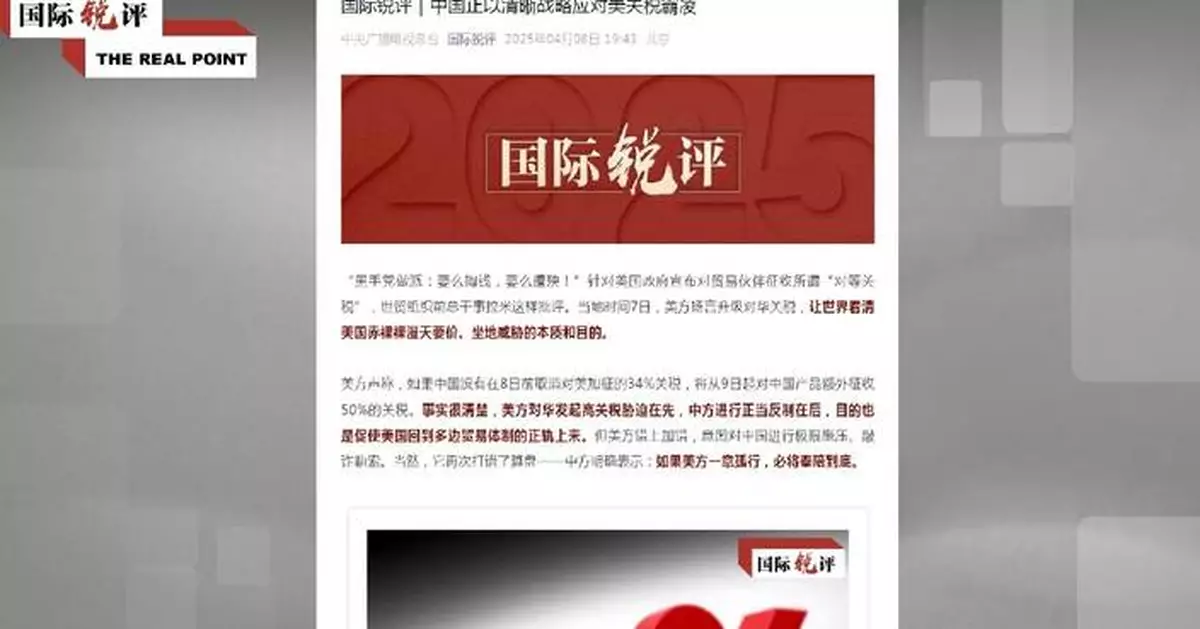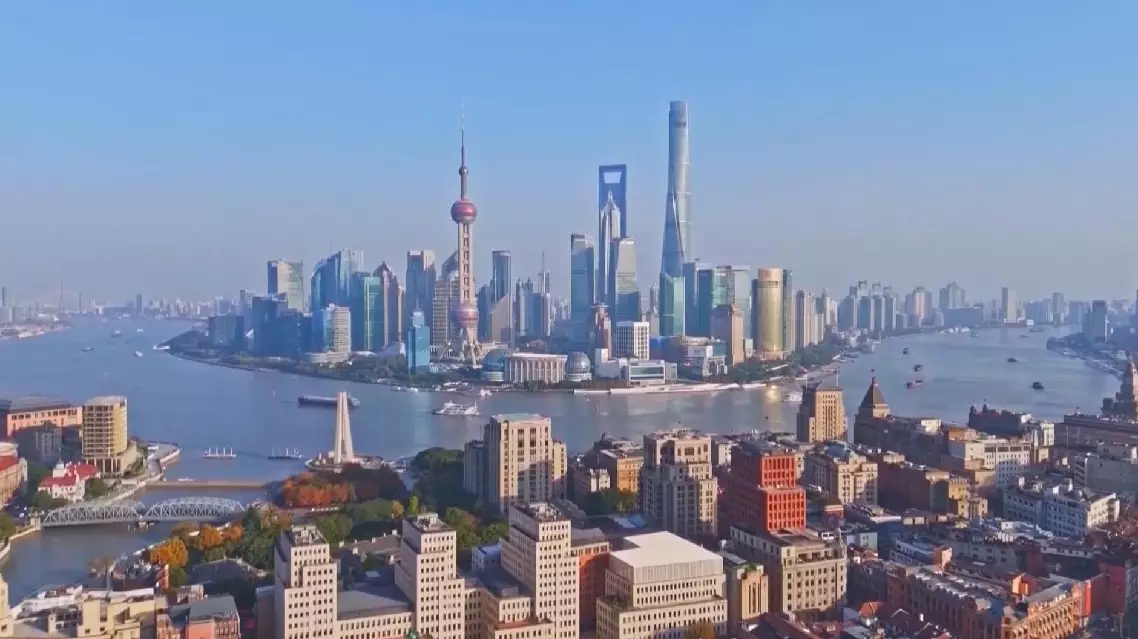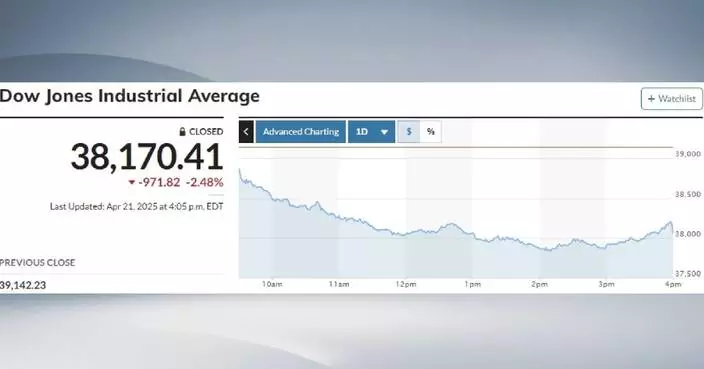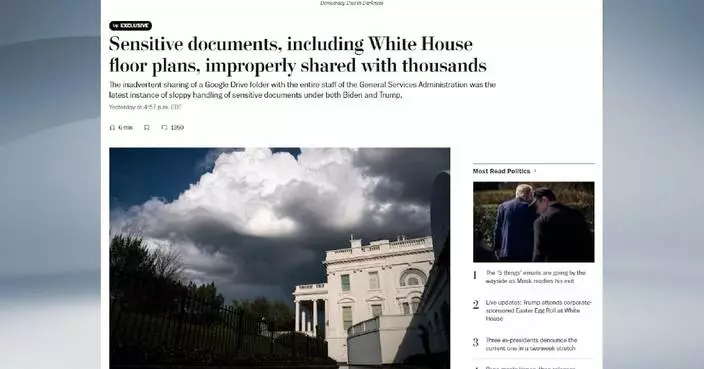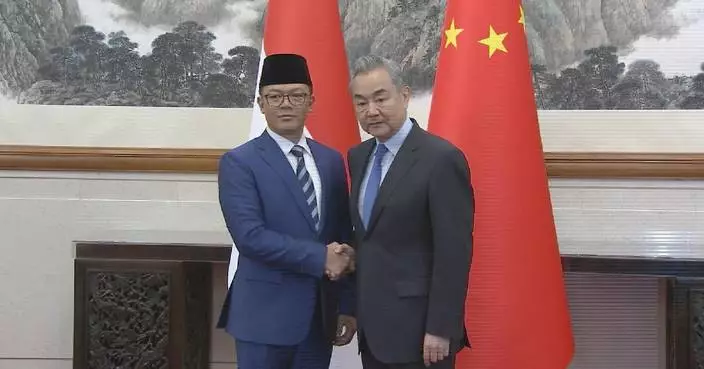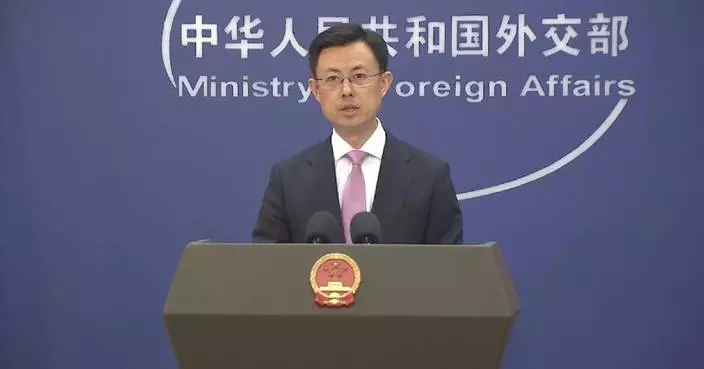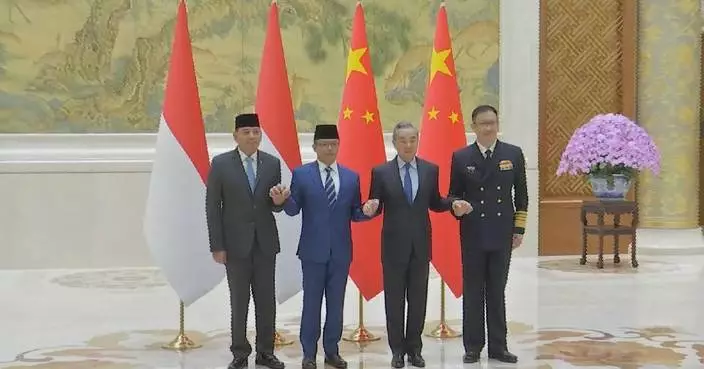China is responding to the United States' "bullying" tariffs with a clear strategy and resolute moves to safeguard its lawful rights and interests, a commentary by The Real Point said on Tuesday.
An edited English version of the commentary is as follows:
The United States on Monday threatened to escalate tariffs on China, letting the world see clearly its nature and purpose of blatant extortion and threat.
The U.S. threatened to impose an additional 50-percent tariff on Chinese imports starting Wednesday if China does not drop its 34-percent counter-tariff on American imports by Tuesday.
The fact is clear: the U.S. threatened China with high tariffs first, and China took legitimate countermeasures later with the purpose to bring the U.S. back to the right track of the multilateral trading system.
The U.S. is persisting in its mistake, attempting to exert pressure and blackmail China. This, of course, is yet another error—China has made it clear that it will fight till the end if the U.S. side is bent on going down the wrong path.
Li Haidong, a professor at China Foreign Affairs University, said there are multiple motives behind the U.S. escalation of its blackmail tactics toward China.
According to Li, in terms of short-term goals, the U.S. government's intensified efforts to play the "tariff card" are mainly to serve next year's midterm elections for political self-interest; in terms of long-term goals, since China is a firm promoter of economic globalization, the U.S. escalation of the "tariff war" is intended to subvert and reshape the process of globalization over the past decades, so as to maintain its hegemonic position and continue to "suck blood" from other parts of the world.
Chinese people do not cause trouble, but they are not afraid of trouble either. Pressuring, threatening and blackmailing are not the right ways to deal with China.
Since the U.S. started the trade war with China in 2018, the Chinese economy has shown its resilience, gaining strength under pressure. Notably, the country has expanded its network of foreign trade partners.
Since 2018, China's exports to ASEAN have increased from 12.8 percent to 16.4 percent, and its exports to Belt and Road Initiative partner countries have risen from 38.7 percent to 47.8 percent. By contrast, China's exports to the U.S. have fell from 19.2 percent to 14.7 percent.
The frantic imposition of tariffs by the United States will not have a disruptive effect on China's overall economy.
What's more, the Chinese economy is an ocean, not a small pond; storms and torrents can flood a small pond, but they can't overwhelm the sea.
This year alone, China has issued an action plan to stabilize foreign investment in 2025, unveiled a plan for special initiatives to increase consumption, accelerated the development of new quality productive forces, and voiced support for the capital market through multiple departments. With ample and vigorous policy tools, China is confident it can remain an engine of global economic growth.
Several foreign-funded financial institutions have recently raised their forecasts for China's economic growth this year. Morgan Stanley raised its forecast by 0.5 percentage points, noting the stronger-than-expected performance in the first quarter and robust investment momentum in emerging industries in its report.
At the same time, many multinationals, including U.S. companies, regard China as an oasis of certainty and a hotbed for investment and business development and have vowed to expand investment and cooperation in China.
Meanwhile, the U.S. escalation of tariff blackmail will further backfire on itself.
David Firestein, president of the George H. W. Bush Foundation for U.S.-China Relations, said the "reciprocal tariffs" will intensify inflation and lead to job losses, calling it "one of the most serious economic policy miscalculations in modern American history."
Goldman Sachs, the American multinational investment bank and financial services company, has raised the probability of a U.S. recession in the next 12 months from 20 percent to 35 percent.
The U.S. has long been accustomed to serving its hegemony at the expense of the world and has been strongly condemned globally.
Marcos Pires, director of the Institute of Economics and International Studies at Sao Paulo State University in Brazil, noted in a recent piece that the U.S., by using tariffs to blackmail the world, has become the greatest source of instability and uncertainty in the world economy.
In his recent article, Yale University economist Stephen Roach noted "America is now the problem, not the solution."
German news magazine Der Spiegel observed that the recent divergent moves by China and the United States are a preview of their new roles in the world economy: one acting as the guardian of global free trade, while the other like a furious man who feels betrayed and throws punches here and there.
China has always believed that China-U.S. trade and economic relations are win-win in nature, and that trade disputes should be properly resolved through equal-footed dialogue. However, if the U.S. escalates tariffs, China will take necessary measures to protect its lawful rights and interests.
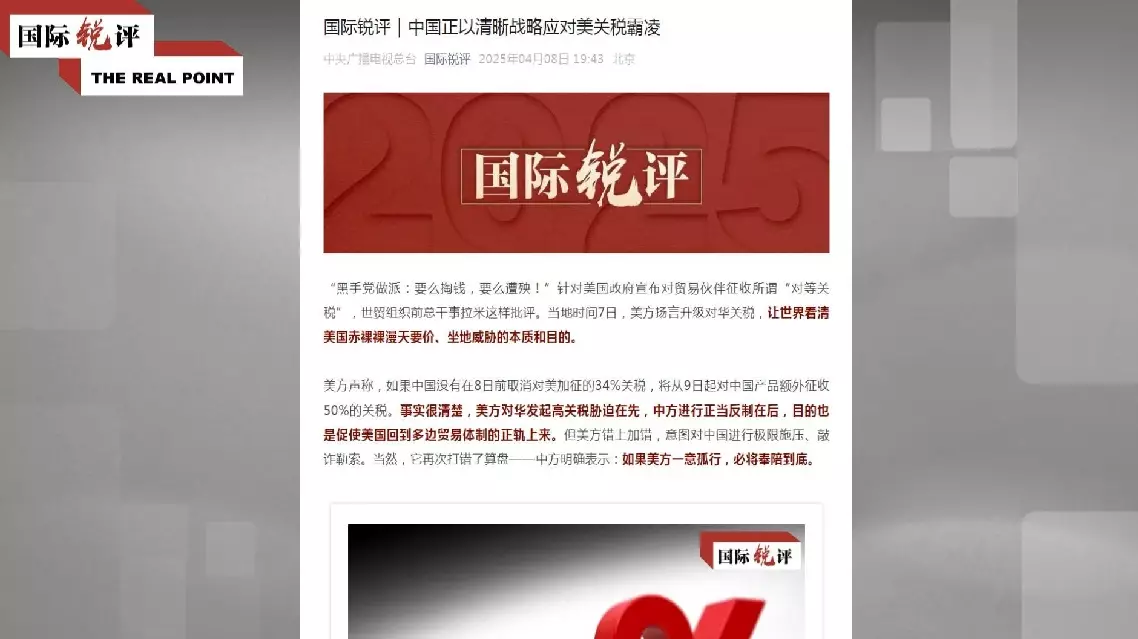
China responds to U.S. tariff bullying with clear strategy: commentary
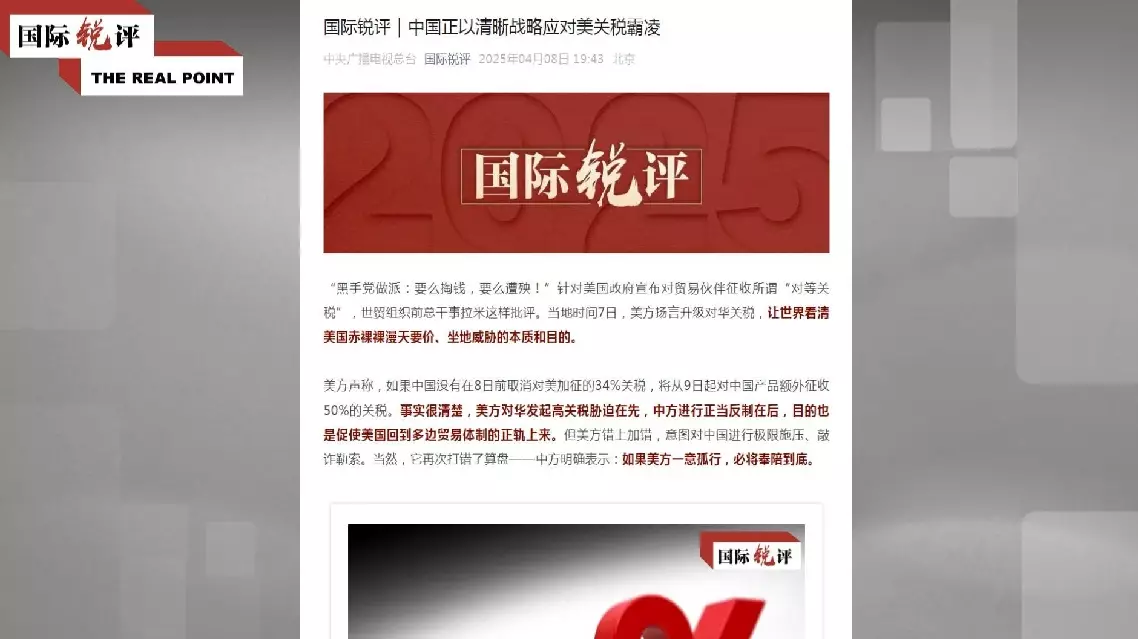
China responds to U.S. tariff bullying with clear strategy: commentary


